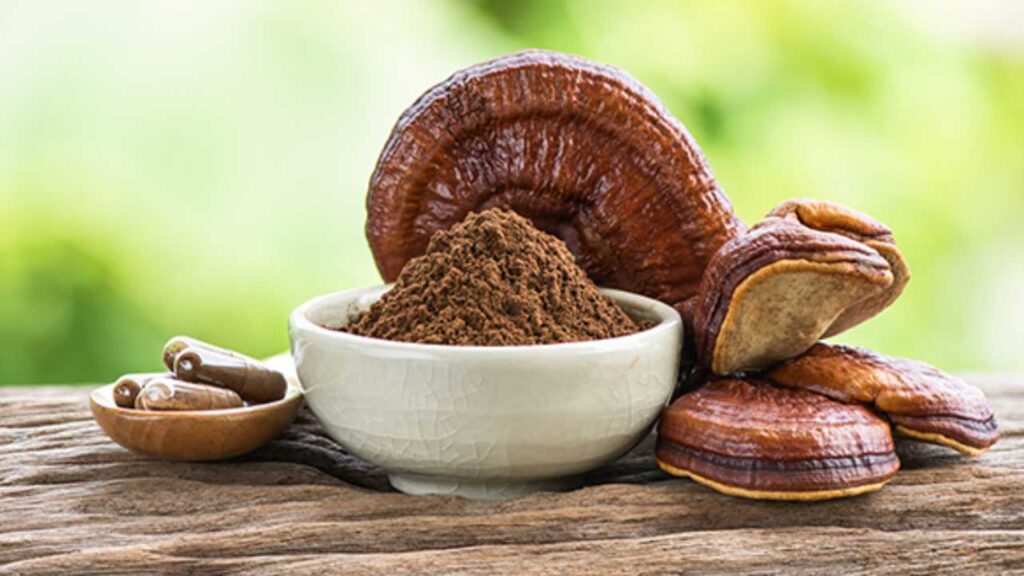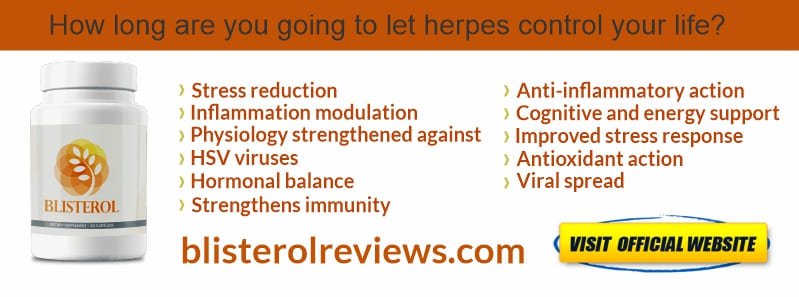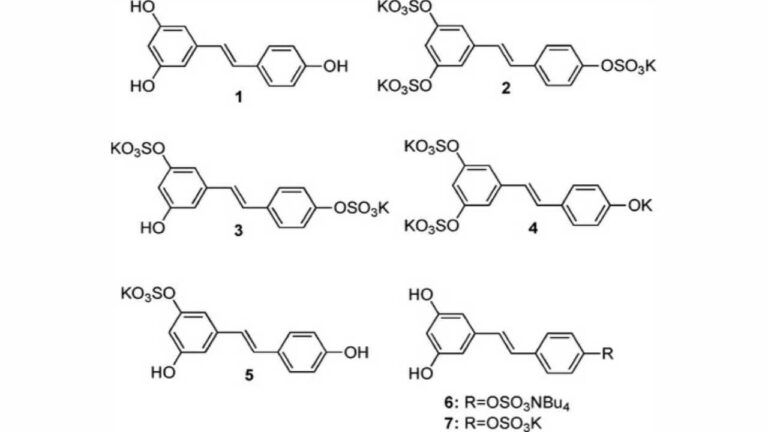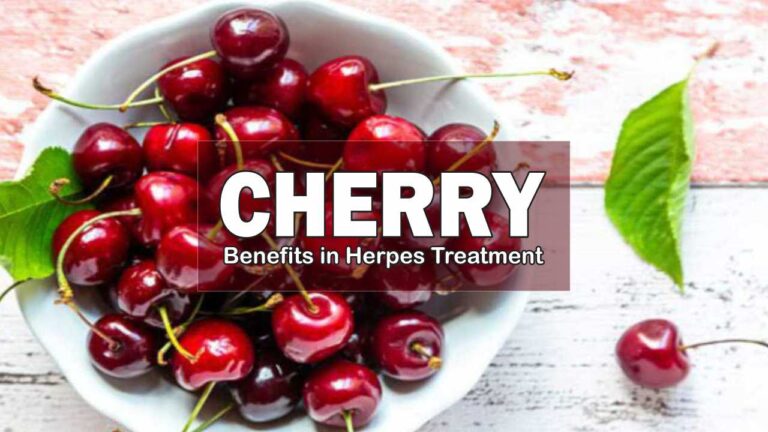Reishi presents itself as a promising option in the treatment of herpes due to its antiviral properties, ability to strengthen the immune system, anti-inflammatory action, and its safety as a natural choice.
Studies on Reishi in Herpes Treatment
Scientific studies have investigated the effects of Reishi in combating the herpes simplex virus. Initial research suggests that the bioactive compounds found in Reishi have antiviral activity against HSV-1 and HSV-2.
In a study published in the “Virology Journal” in 2013, researchers found that a Reishi extract was effective in inhibiting the replication of the herpes simplex virus in human cells. They observed a significant reduction in viral load and viral gene expression, indicating a potential suppression of viral activity.
Another study, conducted by Japanese researchers and published in the “Journal of Ethnopharmacology” in 2015, investigated the effects of Reishi on guinea pigs infected with the herpes simplex virus.
The results showed that the Reishi extract reduced the severity and duration of skin lesions caused by the virus, as well as suppressed viral replication. These findings suggest that Reishi may be useful not only in alleviating herpes symptoms but also in preventing future outbreaks.

Benefits of Reishi in Herpes Treatment
While antiviral medications are available, many are seeking natural approaches to help alleviate symptoms of herpes and cold sores. Here are some benefits of Reishi in herpes treatment:
Antiviral properties
Scientific studies have shown that Reishi contains bioactive compounds that exhibit antiviral activity against herpes simplex virus type 1 (HSV-1) and herpes simplex virus type 2 (HSV-2).
These properties help inhibit viral replication, reducing viral load and viral gene expression. This may contribute to the suppression of viral activity and relief of herpes symptoms.
Reduction in severity and duration of outbreaks
Research suggests that Reishi may reduce the severity and duration of skin lesions caused by the herpes simplex virus. Studies conducted on animals infected with the virus have shown that Reishi extract had positive effects in decreasing lesions and suppressing viral replication.
These results indicate that Reishi may help accelerate the healing process and minimize discomfort associated with herpes outbreaks.
Immune system strengthening
Reishi is known for its ability to modulate the immune system. Herpes is a recurrent disease as the virus can remain latent in the body even after symptom disappearance. Viral reactivation occurs when the immune system is weakened.
Studies have shown that Reishi can stimulate immune function, strengthening the body’s response against viral infections. Thus, the use of Reishi may help reduce the recurrence of herpes outbreaks and minimize symptom severity.
Anti-inflammatory action
Herpes often causes inflammation and redness around the lesions. Reishi is known for its anti-inflammatory properties, which can help reduce the inflammatory response associated with herpes infection.
This can lead to decreased swelling, pain, and discomfort, contributing to a faster and more comfortable recovery.
Natural and safe option
Choosing Reishi in herpes treatment offers the benefits of a natural option. Compared to antiviral medications, Reishi is considered safe and generally does not have significant side effects.
However, it is important to note that each individual may react differently, so it is recommended to consult a healthcare professional before starting any treatment.
Key Nutrients in Reishi for Treating Herpes
Below are some of the key nutrients found in Reishi and how they can contribute to symptom relief and promoting the healing of herpes.
Polysaccharides
Polysaccharides are one of the main active components of Reishi. These compounds are known for their immunomodulatory properties, which can strengthen the immune system and enhance the body’s response against viral infections such as herpes.
Reishi polysaccharides may also have direct antiviral effects by inhibiting viral replication and reducing viral load.
Triterpenoids
Triterpenoids are bioactive compounds found in Reishi that possess anti-inflammatory and antioxidant properties. Inflammation is a common response during herpes outbreaks, and Reishi triterpenoids can help reduce inflammation and alleviate associated symptoms.
Additionally, their antioxidant properties help protect cells from oxidative damage caused by the virus.
Beta-glucans
Beta-glucans are a type of soluble fiber found in Reishi. These substances have been associated with immune system modulation, stimulating immune cell activity and improving the body’s response against viral infections.
Beta-glucans also have antiviral properties, contributing to the suppression of viral activity and reduction of herpes symptoms.
Ergosterol
Ergosterol is a precursor to vitamin D2 found in Reishi. Vitamin D plays a crucial role in immune system regulation and modulation of the inflammatory response. Vitamin D deficiency has been associated with a higher risk of recurrent viral infections.
The ergosterol present in Reishi can help increase vitamin D levels in the body, promoting a healthy immune response and aiding in combating herpes.
Minerals and vitamins
Reishi contains a variety of essential minerals and vitamins, such as calcium, phosphorus, potassium, B vitamins, and vitamin C. These nutrients play important roles in strengthening the immune system, protecting cells from damage, and supporting overall health.
It is important to note that Reishi should be used as part of a holistic approach to herpes treatment, and the nutrients present in it can complement other conventional medical treatments.
How to Use Reishi in a Diet for Herpes Treatment
Including Reishi in your diet for herpes treatment can be beneficial due to its nutrients and bioactive compounds. Here are some ways to incorporate Reishi into your diet:
Reishi Tea
Preparing Reishi tea is a traditional way to consume this medicinal mushroom. You can find Reishi extracts in stores specializing in natural products. Follow the preparation instructions on the package and drink the tea regularly.
Reishi Supplements
If you prefer a more convenient option, you can choose Reishi supplements in the form of capsules, tablets, or powder. Check the recommended dosage on the packaging and follow the manufacturer’s instructions.
Soups and Broths
Reishi can be added to soups, broths, or even stew recipes. Its taste is slightly bitter, so it’s important to balance it with other ingredients and seasonings.
Powder in Drinks or Smoothies
Reishi powder can be added to hot beverages like coffee or tea, or in smoothies. Mix it with other ingredients to mask the bitter taste, such as fruits, vegetables, or plant-based milk. It is also recommended to use natural supplements that contain the same nutrients found in Reishi.
Capsules or Liquid Extracts
In addition to the supplements mentioned above, you can find liquid extracts or Reishi capsules in specialized stores. These options are easy to consume and can be integrated into your daily routine.
Summary
Reishi, also known as Ganoderma lucidum, is a medicinal mushroom with antiviral, immunomodulatory, and anti-inflammatory properties. These characteristics make Reishi a promising option in herpes treatment.
Scientific studies have demonstrated that Reishi can inhibit the replication of the herpes simplex virus and reduce viral load. Additionally, Reishi strengthens the immune system, helping to prevent recurrent herpes outbreaks and reduce symptom severity.
Reishi can be consumed as tea, in supplement form, added to soups, broths, hot beverages, or smoothies. It is important to consult a healthcare professional before starting any supplementation or making dietary changes.




